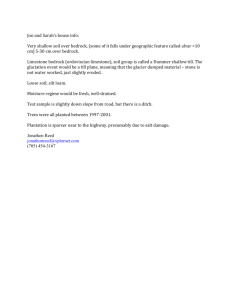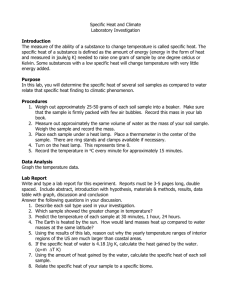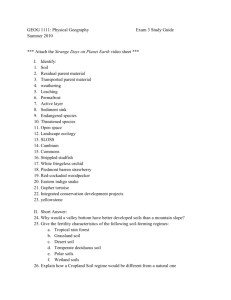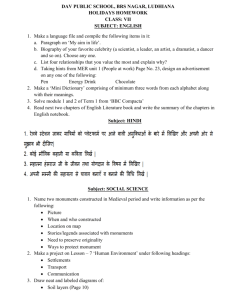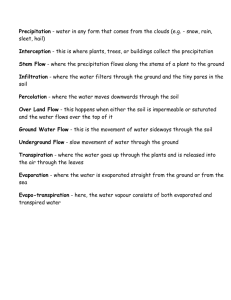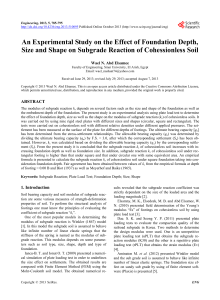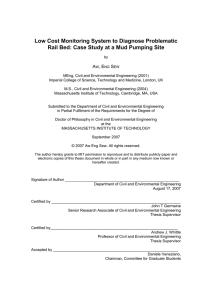P7A SA Modelling of Foundations
advertisement
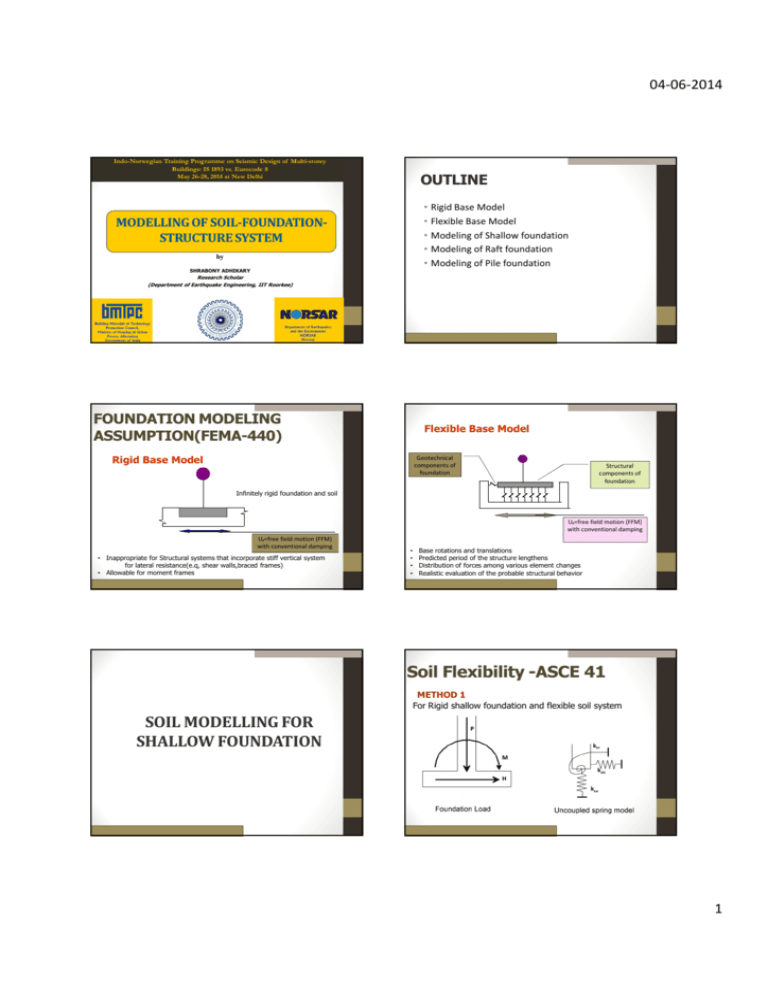
04-06-2014 Indo-Norwegian Training Programme on Seismic Design of Multi-storey Buildings: IS 1893 vs. Eurocode 8 May 26-28, 2014 at New Delhi OUTLINE • Rigid Base Model • Flexible Base Model • Modeling of Shallow foundation • Modeling of Raft foundation • Modeling of Pile foundation MODELLING OF SOIL-FOUNDATIONSTRUCTURE SYSTEM by SHRABONY ADHIKARY Research Scholar (Department of Earthquake Engineering, IIT Roorkee) FOUNDATION MODELING ASSUMPTION(FEMA-440) Flexible Base Model Geotechnical components of foundation Rigid Base Model Structural components of foundation Infinitely rigid foundation and soil Ug=free field motion (FFM) with conventional damping Ug=free field motion (FFM) with conventional damping • Inappropriate for Structural systems that incorporate stiff vertical system for lateral resistance(e.q, shear walls,braced frames) • Allowable for moment frames • • • • Base rotations and translations Predicted period of the structure lengthens Distribution of forces among various element changes Realistic evaluation of the probable structural behavior Soil Flexibility -ASCE 41 METHOD 1 For Rigid shallow foundation and flexible soil system SOIL MODELLING FOR SHALLOW FOUNDATION P ksr M ksh H ksv 1 04-06-2014 Stiffness of foundation at surface Correction Factor for Embedment ASCE 41 ASCE 41 Effective shear modulus Flexible Base properties and Soil Properties Foundation dimensions • Length, L • Width, B • Thickness, d • Depth, D METHOD 2 For Rigid shallow foundation and flexible soil system Winkler Model • Coefficient or Modulus of Subgrade Reaction k end = 6 .83 G (1 − ν ) Stiffness per unit length ASCE 41 k mid = 0 .73 G (1 − ν ) Component Stiffness Modulus of Subgrade Reaction IS 9214 (1979): Method of determination of modulus of subgrade reaction (ksvalue) of soils in field Pressure, σ Initial Tangent or initial secant line Δσ ks =Δσ/Δδ Empirical Relationships (Terzaghi Equation) (Vesic Equation,1961) For Footing on clay ks = k1 (B1/B) ks=1.33* kP * (Bp/B) 0.73 Moayad and Janbaz(2008) ks = Es/B(1-µ2) Δδ For Footing on sand Deformation, δ ks = k1 (B+B1/2B)2 ks value is taken as the slope of the line passing through the origin and the point on the curve corresponding to 1.25 mm settlement 2 04-06-2014 METHOD 3 For flexible shallow foundation and soil system unit subgrade spring coefficient, ksv k sv = 1 . 3G B (1 − ν ) Poisson’s ratio ν v = 0.50 for saturated clay soils ν = 0.25 for all other soils SOIL MODELLING FOR RAFT FOUNDATION Rigid Foundation (Conventional Method) a) The foundation is rigid relative to the supporting soil and the compressible soil layer is relatively shallow. b) The contact pressure variation is assumed as planar, such that the centroid of the contact pressure coincides with the line of action of the resultant force of all loads acting on the foundation. Flexible Foundation (Simplified Method) It is assumed that subgrade consists of an infinite array of individual elastic springs each of which is not affected by others. The spring constant is equal to the modulus of subgrade reaction ( k ). The contact pressure at any point under the raft is, therefore, linearly proportional to the settlement at the point. Calculation of node springs Column IS : 2950 (Part I) – 1981, Code of Practice for Design and Construction of Raft Foundations, Part 1 Design Modeling of Raft Foundation Decoupled Winkler spring model similar to Method 2 Estimate of Modulus of subgrade reaction ks for Sandy soil Loose Sand Medium Dense Sand Dense Sand Clayey Medium Sand Ki(kN/m) =ks (kN/m3)×Area(m2) Silty Medium Dense Sand 4800-16000 kN/m3 9600-80000 kN/m3 64000-128000 kN/m3 32000-80000 kN/m3 24000-48000 kN/m3 3 04-06-2014 Estimate of Modulus of subgrade reaction ks for Clayey soil Clay, qa < 200kPa Clay, 200kPa < qa <800kPa Clay, qa > 800kPa 12000-24000 kN/m3 24000-48000 kN/m3 >48000 kN/m3 Determination of Depth of Fixity IS : 2911 (Part 1/Sec 4) - 1984 Winkler Model SOIL MODELLING FOR PILE FOUNDATION Determination of Lateral deflection and Maximum moment in the Pile IS : 2911 (Part 1/Sec 4) - 1984 Calculation of spring coefficients Silva 2008 Silva 2008 Horizontal soil spring stiffness at any depth was obtained according to the relation Vertical end bearing soil spring stiffness at bottom was obtained according to the relation Vertical skin friction spring stiffness along length of pile ****************** 4


